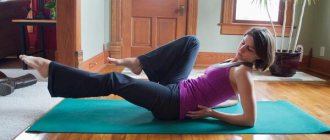Benefits of healthy lifestyle
A healthy lifestyle has a significant impact on immunity.
According to a survey of those who recently changed their lifestyle, after starting a healthy lifestyle, their well-being, mood, and worldview changed noticeably. In addition, striving to live a healthier life leads to the following improvements:
- The frequency of relapses of chronic diseases is reduced;
- When you wake up, there is no fatigue, you feel a surge of strength;
- Increased endurance during sports training is observed;
- The frequency of colds is reduced and their severity is reduced;
- The skin becomes firmer and cleaner.
In addition, research shows that this lifestyle can reduce the likelihood of developing a number of age-related diseases. In addition, this is an excellent example for loved ones, and, first of all, for children.
LIFESTYLE
– a form of human (individual and group) life activity, characteristic of a historically specific system of social relations and civilizational structure.
Fixing the peculiarities of communication, behavior and way of thinking of people in the spheres of work, everyday life, leisure, socio-political and cultural activities, the concept of “lifestyle” gives a typological, “portrait” description of how real living conditions (natural, economic, socio-political, cultural, etc.) in the everyday life and practice of individuals and social communities. Depending on what conditions or parameters of human existence act as the main factors and characteristics, a distinction is made between “nomadic” and “sedentary”, “urban” and “rural”, “traditional” and “industrial”, “aristocratic” and “bourgeois” " etc. Lifestyle. Sometimes this concept was used for formational and civilizational characteristics of a type of life and behavior (“Soviet” or “American”, “Western” or “Eastern”, “socialist” or “capitalist” way of life), which can be disputed. An individual’s lifestyle to a certain extent depends on the psychological characteristics of the person himself (character, temperament, individual way of thinking, etc.) and therefore can be “slow” or “active,” “rational” or “irrational,” etc. The integrative and operational capabilities of this category are realized and manifested in comparison with such concepts as “standard of living”, “quality of life”
and “lifestyle”, which can be considered as concretization and various “slices” of this very complex in its composition and structure social phenomenon. It is the socio-philosophical approach to understanding lifestyle that provides the methodological basis for sociological, economic, sociocultural and any other “aspect” (demographic, psychological, medical, etc.) study of the actually functioning forms of life of individuals and groups.
In the holistic system and structure of the way of life, the dialectic of the general, the special and the individual manifests itself in its own way. Although the way of life depends on living conditions, absorbs and reflects the general typological features of a given society, the “order of life,” it cannot be reduced to a set of circumstances and a synthesis of certain “related” characteristics (the scientific and heuristic value of such a “collective” characteristic is very relative). The specificity and substantive value of the concept “way of life” is revealed when precisely the forms of human life become the subject of consideration and evaluation, i.e. forms of existence and development (production and reproduction) of the individual and social groups formed by society and the historical era. However, a way of life is not some kind of impersonal extract of general conditions, norms of activity and behavior of certain social, cultural, professional, ethnic, etc. groups and individuals. The universal determines, but by no means exhausts, the scope and possibilities for individuals to choose specific forms of their existence and activity. It is also necessary to always take into account the attitude of the individual and communities to the conditions and way of life that they find already established. It is important to take into account significant differences in the lifestyle of people both at the level of the individual, within a given society, and at the level of the individual, within a group community, which affects, for example, the choice of the main occupation, or in the preference for forms of leisure, in the distribution of non-working time etc. M.Weber
, preferring the concept of “lifestyle” instead of the concept of “way of life,” considered the latter as the most important determinant of stratification differences and division of society. As a unit of social action, he identifies the Stand-community of people, based on a specific lifestyle, including a set of habits, values, beliefs, tastes, ideas about honor and other psychological motives. Each lifestyle, according to M. Weber, corresponds to a more or less high assessment (honor), and people, achieving such an assessment, acquire certain ideas and norms of behavior.
As a system of specific cultural forms of communication, a way of life constitutes a necessary link in the relationship between the sphere of production and consumption, on the one hand, and the actual spiritual, moral, aesthetic, etc. spheres of human life - on the other. In the process of cultural development of society, a certain unity of socially typified and psychologically individual (unique) behavior of people is developed, inherent in a given community, and a specific internal structure of the everyday existence of the individual is formed. So, I. Kant
considered the “culture of education” to be the most important element of the way of life, meaning the instillation of a morally good way of thinking, without which only the “appearance” of culture is created (see:
Kant I.
Works in 6 volumes, vol. 6. M., 1966, p. 18).
The dependence of lifestyle on the nature and state of culture of society is historically specific. According to K. Marx
, “the means of subsistence that a worker needs in order for him to live as a worker... are different in different countries and in different states of culture...” (see:
Marx K.
,
Engels F.
Soch., vol. 47. M., 1973, p. 42). Characteristics of the cultural “fund” of a society, group or individual make it possible not only to reveal the value significance of a particular way of life, but also to explain many of the features and contradictions of the latter, which cannot be directly deduced from the socio-economic and political-ideological conditions of one or another society (for example, differences between “Western” and “Eastern” lifestyles within the same type of social system, as in the USA and Japan).
Interest in the problem of lifestyle has increased noticeably at the present time, when in the context of the globalization of the world the question of changing the paradigm and the formation of a “global lifestyle” arises with all urgency; the topic of the fate of existing lifestyles and the lifeworld
post-economic man of the 21st century.
Literature:
1. Tolstykh V.I.
Lifestyle: concept, reality, problems. M., 1975;
2. Ionin L.G.
Sociology of culture. M., 1996;
3. Kozlowski P.
Postmodern culture. M., 1997.
V.I. Tolstykh
Fundamentals and methods of creating a healthy lifestyle
A healthy lifestyle has 7 main “pillars”: physical activity, a balanced diet, the absence of bad habits, hygienic care, adequate sleep and rest, wellness treatments and an emotional state.
If you take care of all these aspects, your quality of life and well-being will improve significantly. Maintaining proper nutrition
The health of internal organs, appearance, well-being and immunity directly depend on what we eat. A healthy lifestyle involves eliminating, or at least reducing, flavorings, flavor enhancers, fatty foods, dyes and preservatives.
Here are the basic rules:
- You should neither starve nor overeat - both have a negative impact on your well-being. You should not feel hungry and, conversely, overeat. Try to ensure that your daily calorie intake is 1700-1900 kcal (the norm for women leading a sedentary lifestyle; for men the daily calorie intake is approximately 300-400 kcal higher).
- Drink clean water. It is advisable to drink 1.5 to 2 liters of water per day (not tea, coffee, juice, etc.)
- Reduce the amount of sweets in your diet. If you want something sweet, give preference to fresh vegetables and dried fruits. You can also consume dark chocolate in moderation.
- Eat small meals at least 4-5 times a day. At the end of the meal, you should still feel slightly hungry.
- The daily menu should contain meat or fish, vegetables and fruits, cereals, and dairy products. Eat a varied diet.
- It is advisable to have dinner at least 2 hours before bedtime. It is not advisable to eat immediately before bed.
- Eliminate fast food, fatty and smoked foods from your diet.
- Give preference to boiling, stewing or baking foods.
If you haven't watched your diet before, it may be difficult for you to suddenly change your diet.
Try to start small - remove fatty sauces and foods that contain them from your diet, avoid flavor enhancers and chemical additives in food, give up fast food products, convenience foods, confectionery, increase the share of fruits and vegetables in the menu. Completing each of these points will be a step towards a healthy diet. Physical activity
Lack of physical activity leads to a decrease in metabolic rate, the development of diseases of the musculoskeletal system, cardiovascular and neurological pathologies.
If your job does not involve movement, try to increase your activity yourself. It is considered normal to spend at least 1 hour a day in motion (this is about 8000-10000 steps). Scientists have proven that every minute of activity affects the body's condition in the long term - this means that even climbing the stairs, rather than taking the elevator, already brings you closer to health.
You can increase your daily activity by making it a habit to start and end your day with a light workout.
If you go to work by public transport, get off 1-2 stops earlier and walk this way. It is very useful to take breaks if you have a sedentary job. On weekends, do some fitness, go for a walk or go to the pool. These measures are quite enough to maintain health and well-being. Hygienic care
Personal hygiene is one of the components of a healthy lifestyle. First of all, this concerns the oral cavity. You need to brush your teeth at least twice a day, and pay attention to the entire oral cavity. In addition to the standard set consisting of a toothbrush and toothpaste, get a irrigator, dental floss and mouth rinse. Failure to comply with these rules is fraught not only with the development of caries, but also with the threat of periodontitis and gastrointestinal diseases.
It is also important to keep the house in order: regularly carry out wet cleaning, prevent dust accumulation, and ventilate the rooms daily.
Maintaining a daily routine
Scientists have concluded that sleep duration and regularity are important for health and well-being.
Every person should sleep at least 7 hours a day. At the same time, it is advisable to fall asleep and wake up at the same time. Of course, sometimes exceptions can be made, for example on weekends. Emotional mood
Nervous tension, constant breakdowns, stress - all this negatively affects mood, well-being and health in general. Experts recommend adhering to the following tips:
- Don't worry about what you can't change. If you cannot cope with anxiety, seek help from a psychologist.
- Think positively, find positive aspects in any situation.
- Don’t hold a grudge, let go of all grudges, don’t envy and don’t do harm to people.
- Try to avoid stressful situations.
A healthy lifestyle is the main factor of health
According to WHO experts, health depends 50-55% on a person’s lifestyle, 20-23% on heredity, 20-25% on the state of the environment (ecology) and 8-12% on the work of the national system healthcare. So, to the greatest extent, human health depends on lifestyle, which means we can assume that the general line of formation and strengthening of health is a healthy lifestyle (HLS).
According to modern concepts, a healthy lifestyle is typical forms and methods of daily human activity that strengthen and improve the adaptive (adaptive) and reserve capabilities of the body, which ensures the successful performance of social and professional functions.
Every lifestyle is based on principles, i.e. rules of behavior that an individual follows. There are biological and social principles on the basis of which a healthy lifestyle is formed. Biological principles : lifestyle should be age-appropriate, energetically secure, strengthening, rhythmic, moderate. Social principles : lifestyle should be aesthetic, moral, strong-willed, self-limiting.
This classification is based on the principle of the unity of the individual and the general, the unity of the organism and the environment - biological and social. In this regard, a healthy lifestyle is nothing more than a rational organization of human life on the basis of key biological and social vital forms of behavior - behavioral factors . We list the main ones:
- cultivation of positive emotions that promote mental well-being - the basis of all aspects of life and health;
- optimal motor activity (OA) is the leading innate mechanism of bioprogress and health;
- rational nutrition is a basic factor of bioprogress and health;
- a rhythmic lifestyle corresponding to biorhythms is the basic principle of the body’s life;
- effective organization of work activity is the main form of self-realization, formation and reflection of human essence;
- sexual culture is a key factor in life as an adequate and progressive form of reproduction of the species;
- healthy aging is a natural process of fruitful longevity;
- giving up harmful addictions (alcoholism, drug addiction, smoking, etc.) is a decisive factor in maintaining health.
In practice, the implementation of these forms of behavior is extremely difficult. One of the main reasons for this should be recognized as the lack of motivation for a positive attitude towards one’s health and healthy lifestyle. The fact is that in the hierarchy of needs underlying human behavior (for example, a student), health is far from being in first place. This is due to the low individual and general culture of Russian society, which determines the lack of emphasis on the primacy (supremacy) of the value of health in the hierarchy of human needs. Consequently, the formation of health is primarily the problem of every person. It should begin with the education of motivation for health and a healthy lifestyle, because this motivation is a system-forming factor in behavior. In other words, if there is motivation (a purposeful need), there will be corresponding behavior.
How lifestyle affects health and life expectancy
It is generally accepted that a habit is formed within 21 days.
By following the above rules, you can form a habit that will help you prolong your life and slow down the aging process. It is very important to follow the basics of a healthy lifestyle in a comprehensive manner. That is, if you take care of personal hygiene, exercise and eat right, but also smoke, a bad habit can slow down positive changes. The habit of living healthy
If you follow a healthy lifestyle, try to do everything possible to pass on a healthy habit to your children. Teach your child to do the right things from an early age.
- Enroll your child in a sports section from an early age.
- Go out into nature at least once a week.
- Sometimes give up public transport and the car, walk more.
- Visit your doctor regularly for preventive examinations of your body.
- Try not to introduce your child to fast food, sweets and products containing chemicals.
- From childhood, teach your child the rules of personal hygiene.
- Involve your child in house cleaning.
A healthy lifestyle should not cause discomfort; all actions should be a joy. Instill good habits gradually. First, get used to the new food, then start doing exercises in the morning, etc. Over time, you will begin to feel better and calmer, and you will be able to achieve goals that previously seemed unattainable.
Criteria for the effectiveness of using a healthy lifestyle
23 October 2022 08:10
Quantity
A healthy lifestyle has a wide positive range of effects on various aspects of the manifestations of the human body and personality. In behavior, this manifests itself in greater vitality, composure, and good communication skills; a feeling of one’s physical psycho-emotional attractiveness, an optimistic attitude, the ability to ensure one’s complete and pleasant rest, a holistic culture of life. In the psychological aspect, the advantages of a healthy lifestyle are found in the quality of mental health, good health, neuropsychic stability, and the ability to successfully endure the consequences of mental stress; in a well-expressed volitional organization (self-control, determination, persistence in achieving a set goal, determination), self-confidence, less susceptibility to depression, hypochondria, and suspiciousness.
In the functional manifestation, one can note: a higher quality of health, improved adaptation processes, increased performance and fitness; reduction of morbidity and pain; faster and more complete course of recovery processes after physical and mental activity; strengthening the body's immune defense mechanisms; activity of metabolic processes in the body; normalization of the ratio of body weight and height; good posture and ease of gait.
Each person’s path to a healthy lifestyle has its own characteristics in time and trajectory, but this is not of fundamental importance - the end result is important.
Summarizing the data on the effectiveness of the transition to a healthy lifestyle, we can assume that it:
-positively and effectively reduces or eliminates the impact of risk factors, morbidity and, as a result, reduces treatment costs;
- contributes to making a person’s life healthier and longer;
- ensures good relationships in the family, health and happiness of children;
-is the basis for the realization of a person’s need for self-realization, ensures high social activity and social success;
-determines high performance of the body, reduced fatigue at work, high labor productivity and, on this basis, high material wealth;
— allows you to give up bad habits, rationally organize and distribute your time budget with the obligatory use of means and methods of active recreation.
Track. news
Prev. news










